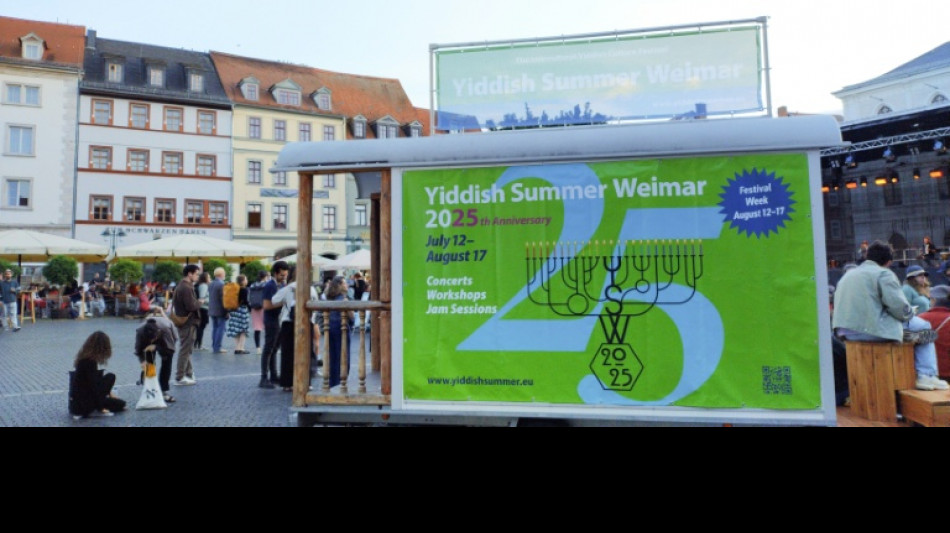
-
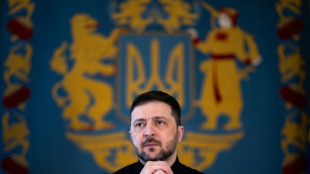 Putin failed to achieve goals in Ukraine, Zelensky says on war anniversary
Putin failed to achieve goals in Ukraine, Zelensky says on war anniversary
-
China tightens Japanese trade restrictions as spat worsens

-
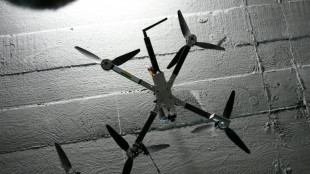 Ukraine war exhibition opens at Berlin Nazi bunker museum
Ukraine war exhibition opens at Berlin Nazi bunker museum
-
Jihadist threat puts eastern Senegal on edge

-
 Kim Yo Jong: the powerful sister behind North Korea's supreme leader
Kim Yo Jong: the powerful sister behind North Korea's supreme leader
-
North Korea ruling party promotes Kim Jong Un's younger sister

-
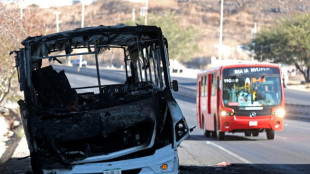 Mexico's Jalisco cautiously tries returning to normal after cartel violence
Mexico's Jalisco cautiously tries returning to normal after cartel violence
-
Mexico's violence-hit Guadalajara to host World Cup games
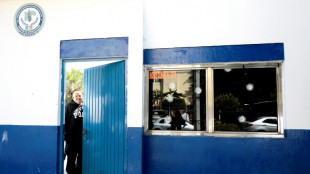
-
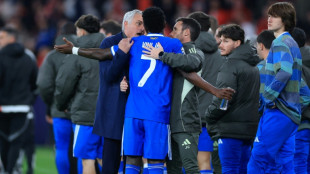 Mourinho's Bernabeu homecoming upended by suspension, racism row
Mourinho's Bernabeu homecoming upended by suspension, racism row
-
China targets Japanese companies over military ties

-
 Griezmann in talks to join MLS side Orlando City: source
Griezmann in talks to join MLS side Orlando City: source
-
France to revoke US envoy's govt access after summons no-show
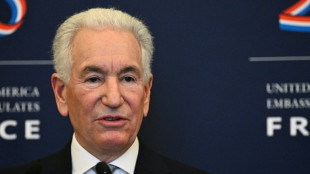
-
 Spurs overpower Pistons in clash of NBA's form teams
Spurs overpower Pistons in clash of NBA's form teams
-
Inoue to fight Nakatani in Tokyo in May: reports

-
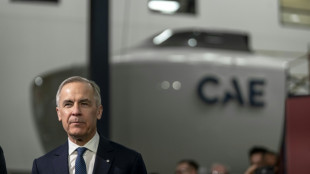 Canada PM to push trade, rebuild fractured ties in India trip
Canada PM to push trade, rebuild fractured ties in India trip
-
Asian markets mixed as traders weigh AI and tariffs outlook
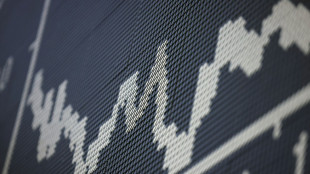
-
 Votes may 'melt like snow': Reform, Greens eye Labour UK bastion
Votes may 'melt like snow': Reform, Greens eye Labour UK bastion
-
Venezuela says exiles welcome to return following mass amnesty
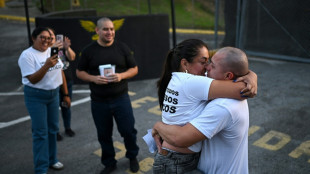
-
 Australia buys parts for future AUKUS sub reactor
Australia buys parts for future AUKUS sub reactor
-
Ukraine marks four years since Russian invasion
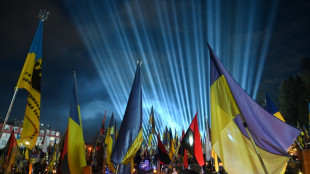
-
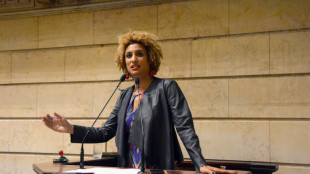 Brazil court to try politicians over hit on black councilwoman
Brazil court to try politicians over hit on black councilwoman
-
Interim president says Venezuelans welcome to return after amnesty law
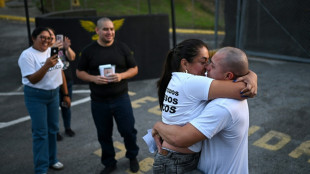
-
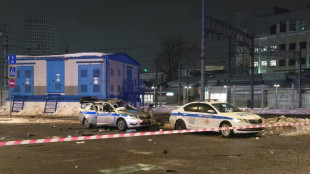 Man kills police officer in Moscow train station blast
Man kills police officer in Moscow train station blast
-
Despite drop in 2025, Russian oil exports exceed pre-war volumes: report

-
 Bolt Metals Announces Closing of Fully Subscribed Private Placement
Bolt Metals Announces Closing of Fully Subscribed Private Placement
-
InterContinental Hotels Group PLC Announces Transaction in Own Shares - February 24

-
 Nikon Expands Popular Monarch and Prostaff Binocular Lines
Nikon Expands Popular Monarch and Prostaff Binocular Lines
-
Australian PM seeks removal of UK's Andrew from line of succession
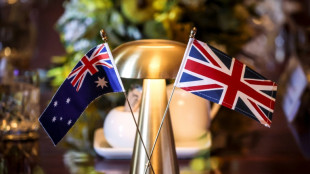
-
 Carrick hails 'ruthless' Man Utd match-winner Sesko
Carrick hails 'ruthless' Man Utd match-winner Sesko
-
N.Korea leader's sister promoted at party congress

-
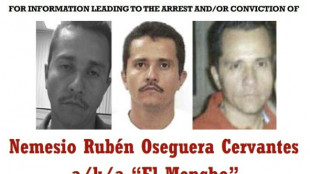 The key to taking down Mexico's most-wanted narco? His girlfriend
The key to taking down Mexico's most-wanted narco? His girlfriend
-
Winter storm blankets US northeast as travel bans imposed
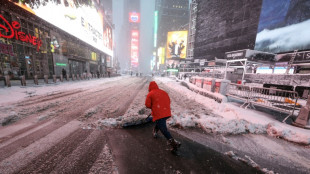
-
 Super-sub Sesko fires Man Utd to win at Everton
Super-sub Sesko fires Man Utd to win at Everton
-
YouTube exec says goal was viewer value not addiction

-
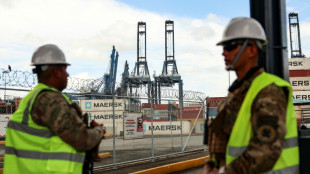 Panama wrests control of canal ports from Hong Kong group
Panama wrests control of canal ports from Hong Kong group
-
Trump denies top US officer warned of Iran strike risks

-
 Mayweather to fight Pacquiao in Las Vegas in September
Mayweather to fight Pacquiao in Las Vegas in September
-
US stocks tumble on tariff fog, worries over AI

-
 US says China 'massively expanded' nuclear arsenal
US says China 'massively expanded' nuclear arsenal
-
US forces to complete withdrawal from Syria within a month

-
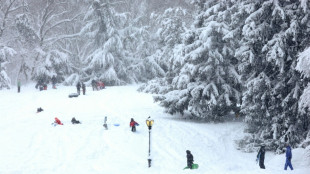 US winter storm brings rare hush to snowy New York
US winter storm brings rare hush to snowy New York
-
George adamant Six Nations losses don't make England 'a bad team overnight'

-
 US Supreme Court to hear bid to block climate change suits
US Supreme Court to hear bid to block climate change suits
-
Canada summons OpenAI over failure to report mass shooter
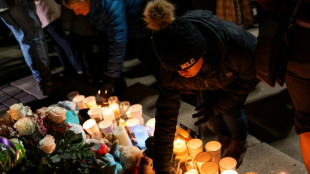
-
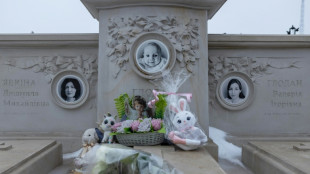 From Odesa to Bakhmut, revisiting a Ukrainian family torn by war
From Odesa to Bakhmut, revisiting a Ukrainian family torn by war
-
Vonn says Olympic injury could have led to amputation
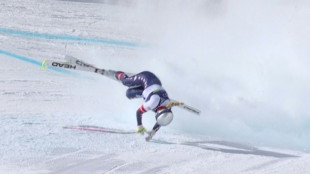
-
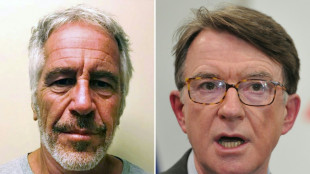 UK police arrest ex-envoy Peter Mandelson in Epstein case
UK police arrest ex-envoy Peter Mandelson in Epstein case
-
Trump either a 'traitor' or 'exceptional', Nobel-winner Walesa tells AFP
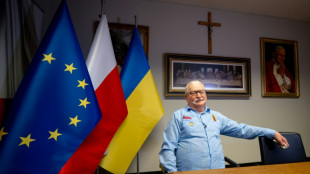
-
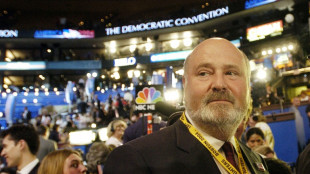 Son of director Rob Reiner pleads not guilty to parents' murder
Son of director Rob Reiner pleads not guilty to parents' murder
-
Panama takes control of canal ports from CK Hutchison
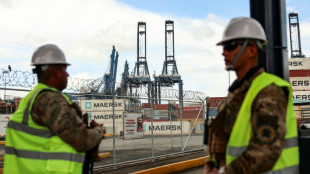

'Food for the soul': Germany's Yiddish revival
A push to revitalise Yiddish and its cultural traditions has gained momentum in Germany, the very place where the Nazi regime's Holocaust sought to eradicate the Jewish communities who spoke it.
Thousands flocked to the city of Weimar for a recent festival that celebrated the linguistic tradition with workshops, cabaret performances and even heart-stopping circus acrobatics.
Musical offerings ranged from traditional klezmer performances on violin and accordion evoking the Central Europe of old to more modern shows, including psychedelic Yiddish rock.
Yiddish, the language spoken by Ashkenazi Jews across Europe before the Holocaust, is now perhaps best known to many English speakers through words such as "schlep", "klutz" and "chutzpah".
Over the past decade Weimar has become the heartland of the far-right and anti-immigration Alternative for Germany (AfD) party.
But the festivities, which drew visitors and artists from as far as the United States, Ukraine and Australia, ended with a call from the event's artistic director Alan Bern to protect a "diverse society" spanning many parts of the world.
At a concert performance in Weimar's Marktplatz square, Bern reminded the audience that "we are standing on a square where fascism was once celebrated".
"Here we are -- and, until now, they're not here!" Bern said to enthusiastic applause from the crowd.
After an open-air Yiddish singalong Jana Wagner, a 55-year-old teacher, said the community get-together was "food for the soul".
Other festival-goers joined hands in a circle for a folk dance.
- Loss and assimilation -
Before World War II there were estimated to be more than 10 million speakers of Yiddish globally.
Huge numbers perished in the Holocaust, yet even immediately after the war Yiddish was the pre-eminent language among the world's Jews.
Over the second half of the 20th century the number of speakers dwindled further.
That was due in part to assimilation of the Ashkenazi population -- forced and otherwise -- in the Soviet Union, the United States and Israel, where Hebrew is the official language.
Today between 500,000 and a million people are estimated to speak Yiddish in their daily lives, overwhelmingly in ultra-Orthodox Jewish communities.
UNESCO classifies it as an endangered language in Germany and throughout its former sphere of influence in Europe -- from the United Kingdom to Russia and from Scandinavia to Italy -- as well as in Israel.
Many of those drawn to learning the language have Yiddish-related family heritage -- but by no means all.
Some expressive Yiddish words are widely used in English, often in a humorous way -- from "klutz" (a clumsy person) to "schlep" (to carry something burdensome) and "chutzpah" (a term for audacity, or sheer gall).
Yiddish emerged around 1,000 years ago from the German spoken in that period, and the two languages still share many words in common.
Even today, "for people who have German as a first language, it's fairly easy to understand," said 66-year-old retiree and festival attendee Sabine Lioy.
- 'Danger of nostalgia' -
Berlin, for a time in the early 20th century, was a honeypot for Yiddish writers and artists, said poet and activist Jake Schneider.
"It was absolutely essential to go to Berlin if you wanted to see and be seen," said Schneider, part of Berlin's contemporary Yiddish cultural scene.
Today, the city has once again become one of the most important centres of secular Yiddish life.
Its longstanding arts scene and anarchic energy feed into avant-garde pop-up art exhibitions, Yiddish open mic nights and dance parties.
Schneider said he and many of those active in the Yiddish scene are alive to the "danger of becoming really wrapped in a ball of nostalgia and wistfulness".
Instead, the language has become a way for them to discuss Jewish identity and politics today.
In Weimar, one of the best-known musicians working in Yiddish, Daniel Kahn, addressed the painful topic of militant group Hamas' October 7 attacks on Israel, and the devastating military response in the Palestinian territory of Gaza.
"Their deaths will not revive the dead," he sang, performing a work by Yiddish poet Zackary Sholem Berger written about the Gaza war.
"Their hunger is not our bread."
As Kahn told the audience, Yiddish language and culture, with their centuries-old tradition, are also a way of "confronting the present and even the future".
C.Garcia--AMWN


